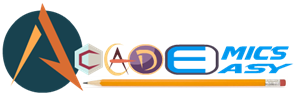Genre categories in English Literature
Fiction and Non-fiction
Genre may fall under one of two categories: Fiction and Nonfiction. Any genre can be either: a work of Fiction (nonfactual descriptions and events invented by the author) or a work of Nonfiction (a communication in which descriptions and events are understood to be factual.
Common genres: Fiction
Subsets of genres, known as common genres, have developed from the archetypes of genres in written expression. The common genres included in recommended Literation verse or prose, usually for theatrical performance, where conflicts and emotion are expressed through dialogue and action
1. Classic: fiction that has become part of an accepted literary canon, widely taught in schools
2. Comic/Graphic Novel:scripted fiction told visually in artist drawn pictures, usually in panels and speech bubbles
3. Crime/Detective: fiction about a committed crime, how the criminal gets caught, and the repercussions of the crime
4. Fable: narration demonstrating a useful truth, especially in which animals speak as humans; legendary, supernatural tale
5. Fairy tale: story about fairies or other magical creatures, usually for children
6. Fanfiction: fiction written by a fan of, and featuring characters from, a particular TV series, movie, etc.
7. Fantasy: fiction with strange or otherworldly settings or characters; fiction which invites suspension of reality
8. Fiction narrative:literary works whose content is produced by the imagination and is not necessarily based on fact
9. Fiction in verse:full-length novels with plot, subplot(s), theme(s), major and minor characters, in which the narrative is presented in verse form (usually free verse)
10. Folklore: the songs, stories, myths, and proverbs of a people or “folk” as handed down by word of mouth
11. Historical fiction:story with fictional characters and events in a historical setting
12. Horror: fiction in which events evoke a feeling of dread and sometimes fear in both the characters and the reader
13. Humor: Usually a fiction full of fun, fancy, and excitement, meant to entertain and sometimes cause intended laughter; but can be contained in all genres
14. Legend: story, sometimes of a national or folk hero, that has a basis in fact but also includes imaginative material, Magical Realism magical or unreal elements play a natural part in an otherwise realistic environment
15. Metafiction: also known as romantic irony in the context of Romantic works of literature, uses self-reference to draw attention to itself as a work of art, while exposing the “truth” of a story
16. Mystery: this is fiction dealing with the solution of a crime or the unraveling of secrets
17. Mythology: legend or traditional narrative, often based in part on historical events, that reveals human behavior and natural phenomena by its symbolism; often pertaining to the actions of the gods
18. Mythopoeia: this is fiction where characters from religious mythology, traditional myths, folklores and history are recast into a re-imagined realm created by the author.
19. Realistic fiction:story that is true to life
20. Science fiction: story based on impact of actual, imagined, or potential science, usually set in the future or on other planets
21. Short story:fiction of such brevity that it supports no subplots
22. Suspense/Thriller: fiction about harm about to befall a person or group and the attempts made to evade the harm
23. Tall tale: humorous story with blatant exaggerations, swaggering heroes who do the impossible with nonchalance
24. Western: set in the American Old West frontier and typically set in the late eighteenth to late nineteenth century
Common genres: Non-fiction
1. Biography/Autobiography: Narrative of a person’s life. A true story about a real person.
2. Essay: A short literary composition that reflects the author’s outlook or point.
3. Narrative nonfiction:Factual information presented in a format which tells a story.
4. Speech: Public address or discourse.
5. Textbook: Authoritative and detailed factual description of a topic.
6. Reference book: Dictionary, thesaurus, encyclopedia, almanac, atlas, etc.
